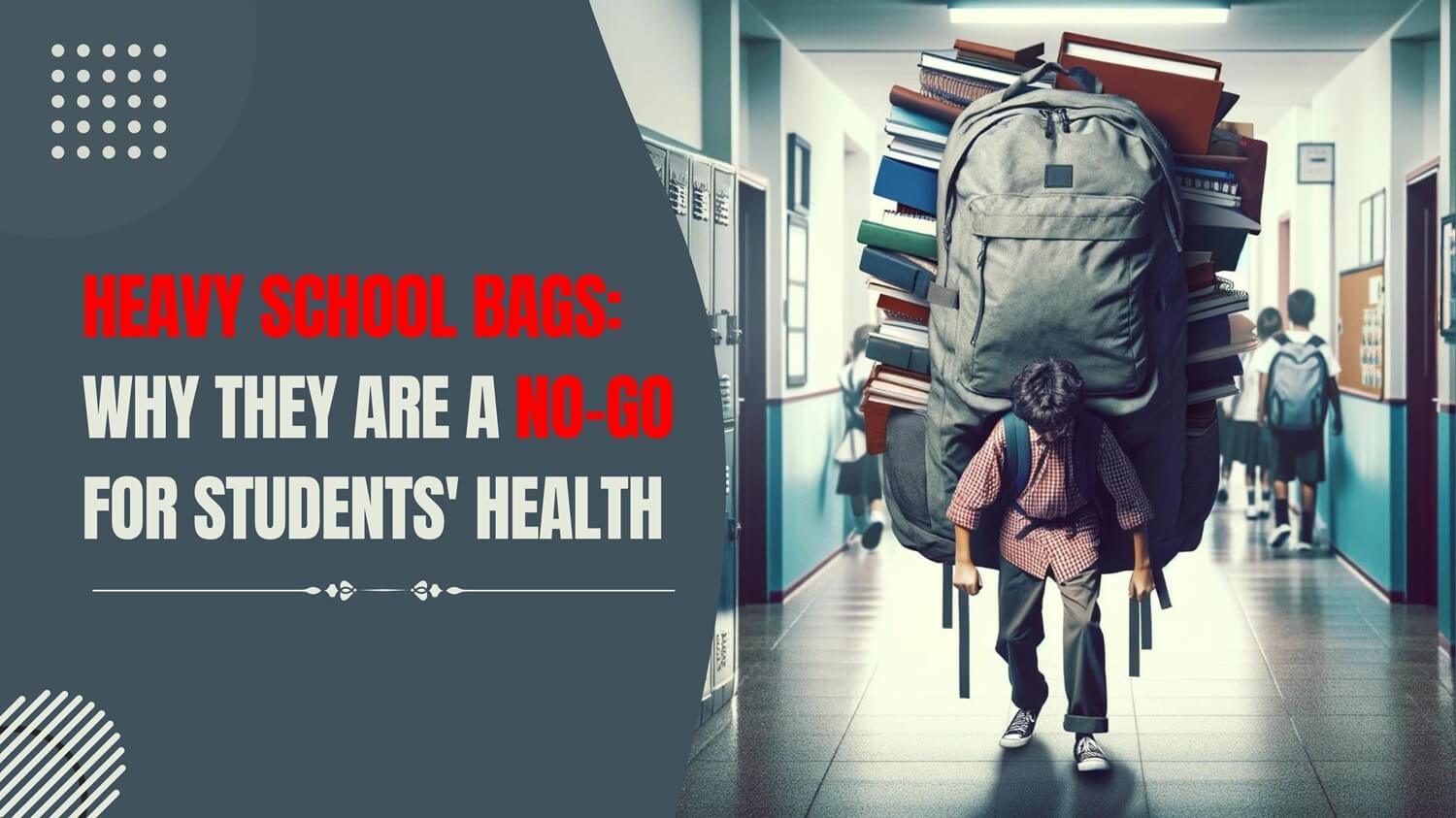Heavy School Bags: Why They Are a No-Go for Students Health

The familiar sight of a child carrying a backpack that seems to weigh them down is a concern for many parents and educators. While textbooks and school supplies are a necessary part of the learning process, heavy bags can pose serious risks to a child’s developing body.
In this article, let us understand the reasons why heavy school bags are a no-go for students’ health. Also, let’s learn how we can offer solutions to create a lighter, healthier learning experience.
The Toll on Their Growing Bodies
Carrying heavy backpacks can lead to various physical problems, especially for children whose bodies are still growing and developing. The most common concern is pain in the back, neck, and shoulders. This pain can be caused by muscle strain and fatigue from carrying excessive weight.
The constant strain from a heavy bag puts undue pressure on the developing spine, potentially affecting a child’s posture, mobility, and even enjoyment of daily activities.
Heavy bags can also restrict breathing, making it harder for children to breathe comfortably. This can lead to fatigue, decreased stamina, and even difficulty concentrating in school.
Beyond the Physical
A bulky bag can make it difficult for children to move freely, limiting their ability to navigate stairs or crowded spaces. The discomfort and pain associated with heavy bags can contribute to stress, anxiety, and even a dislike for school. It can negatively impact a child’s overall well-being and learning experience.
Lightening the Load
Fortunately, there are solutions to address the issue of heavy school bags and create a healthier learning environment. Setting weight restriction guidelines is one of them. Schools can implement these guidelines, aiming for backpacks to weigh no more than 10% of a child’s body weight.
These educational institutions can consider providing lockers, encouraging digital learning resources, and limiting the number of textbooks carried out each day.
Also, choosing ergonomic backpacks with padded straps, multiple compartments for even weight distribution, and adjustable features to ensure a comfortable fit is essential. Encouraging students to pack efficiently, organising their belongings clearly, and using resources like lockers when available can help them manage their load.
Parents can support their children by packing only essential items, teaching proper carrying techniques, and advocating for weight restrictions in schools.
Tips for Packing Backpacks Efficiently
Plan ahead
Check the school schedule of your child and help them pack only the books and supplies needed for each day’s classes. Ask them to avoid carrying unnecessary items like toys, extra clothes, or personal belongings that can be left at home or sent by you to the school.
Utilise compartments effectively
Teach your children to divide items throughout the backpack, placing heavier objects closer to the centre and back of the bag for better balance. Lighter items can be placed in front compartments or side pockets.
Choose lightweight alternatives
Advise your children to opt for lighter notebooks and binders whenever possible. Consider digital resources like e-readers or tablets to further reduce the physical weight of books.
Clean out regularly
Encourage your child to regularly declutter their backpacks, removing unused items, crumpled papers, or unnecessary personal belongings that add weight.
Benefits of Lighter Backpacks
When students are not weighed down by heavy bags, they are more likely to be active participants in class and physical activities. You will see your child improve in his overall learning and engagement throughout the school year.
Carrying a lighter bag also minimises fatigue and eliminates discomfort faced by them throughout the day. This has been shown to improve mental clarity and reduce stress levels, allowing students to focus better in school.
Packing and carrying a manageable backpack also psychologically empowers students with a sense of independence and responsibility, fostering self-confidence and positive learning experiences.
Lighter backpacks contribute more towards a positive school environment by creating a sense of comfort and ease for students, promoting better learning and creating a more enjoyable experience for everyone.
By working together, schools and parents can create a supportive learning environment that prioritises both education and well-being. Lighter backpacks lead to a healthy and comfortable student, who is happy and an engaged learner, thereby paving their way towards a brighter future.
